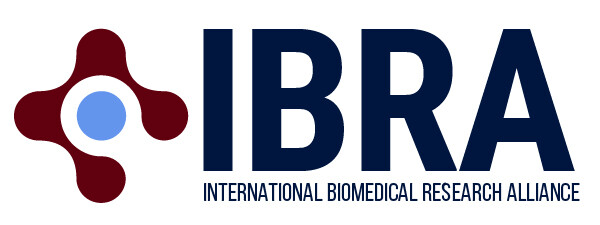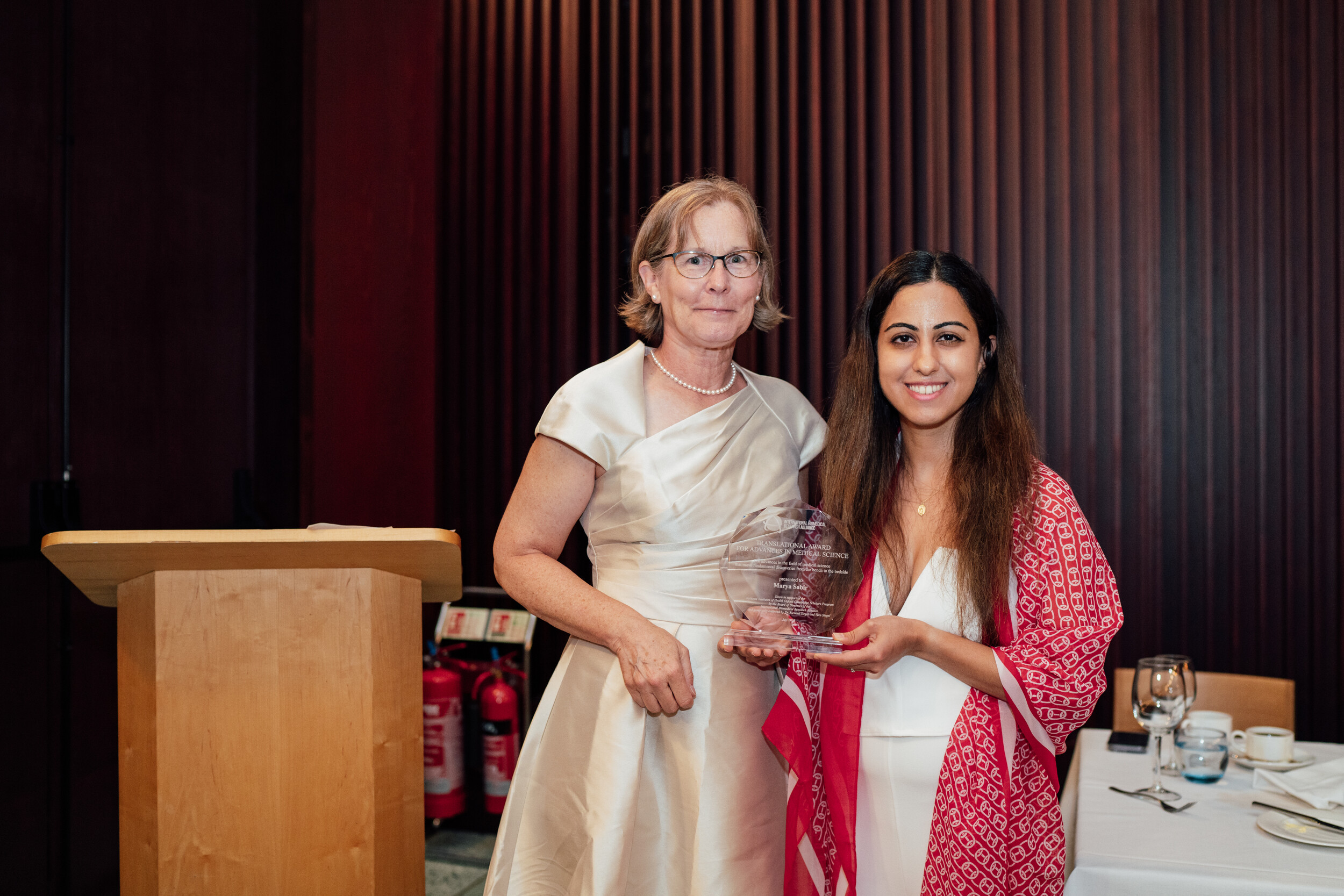First awarded in 2016, the Dr. Richard and Vera Siegel Translational Award was generously endowed by NIH M.D./Ph.D. Partnership Program co-founder, Dr. Richard Siegel, and his wife, Vera. This annual award recognizes advances in the field of medical science that move fundamental discoveries from the bench to the bedside. This year, incoming NIH OxCam Scholars Program Scientific Co-Director, Dr. Mary Dasso, presented the award to the Class of 2019 Ph.D. Scholar Marya Sabir.
Marya Sabir is mentored by Dr. William Gahl at the National Human Genome Research Institute and Professor Frances Platt at the University of Oxford. Marya played a major leadership role in the investigation of a very rare, neurodegenerative disease called free sialic acid storage disease (FSASD). She conducted translational studies, including the development of a novel FSASD-specific cell assay to be used for high-throughput drug screening for both mouse and cell models and human-derived tissues. Marya also characterized the neurobehavioral and biochemical aspects of the FSASD knock-in mouse model and is currently testing a potential small-molecule drug and options for gene therapy in the mouse model.
While Marya’s work has dramatically accelerated the road to therapeutic options for FSASD, she explores implications for a more common disease, as the variants are risk factors for developing Parkinson’s Disease.
“I am truly humbled to have been awarded the Dr. Richard and Vera Siegel Translational Award at the 2023 NIH Global Doctoral Partnerships Annual Workshop Awards Ceremony, for my work in FSASD. I would like to first dedicate this award to my mentors, Drs. May Malicdan, Bill Gahl, and Frances Platt, for their countless hours of guidance and unwavering support. Over the past few years, I have also had the privilege of engaging with the Salla Treatment and Research Foundation, the patient advocacy group for FSASD. This connection with the patient community and their families, and the urgent need for therapies now is what drives me day in and day out. My hope and vision is that within the next five years, we will have several symptomatic and disease-modifying candidates in clinical trials for FSASD. I am grateful to the NIH OxCam program for giving me the unique opportunity to do this work and to Dr. and Mrs. Siegel for endowing this award,” remarked Marya.
Marya is currently completing her DPhil studies in Oxford and writing her dissertation. Marya plans to pursue medical training in the hopes of improving bench-to-bedside care for patients suffering with rare neurological diseases.

